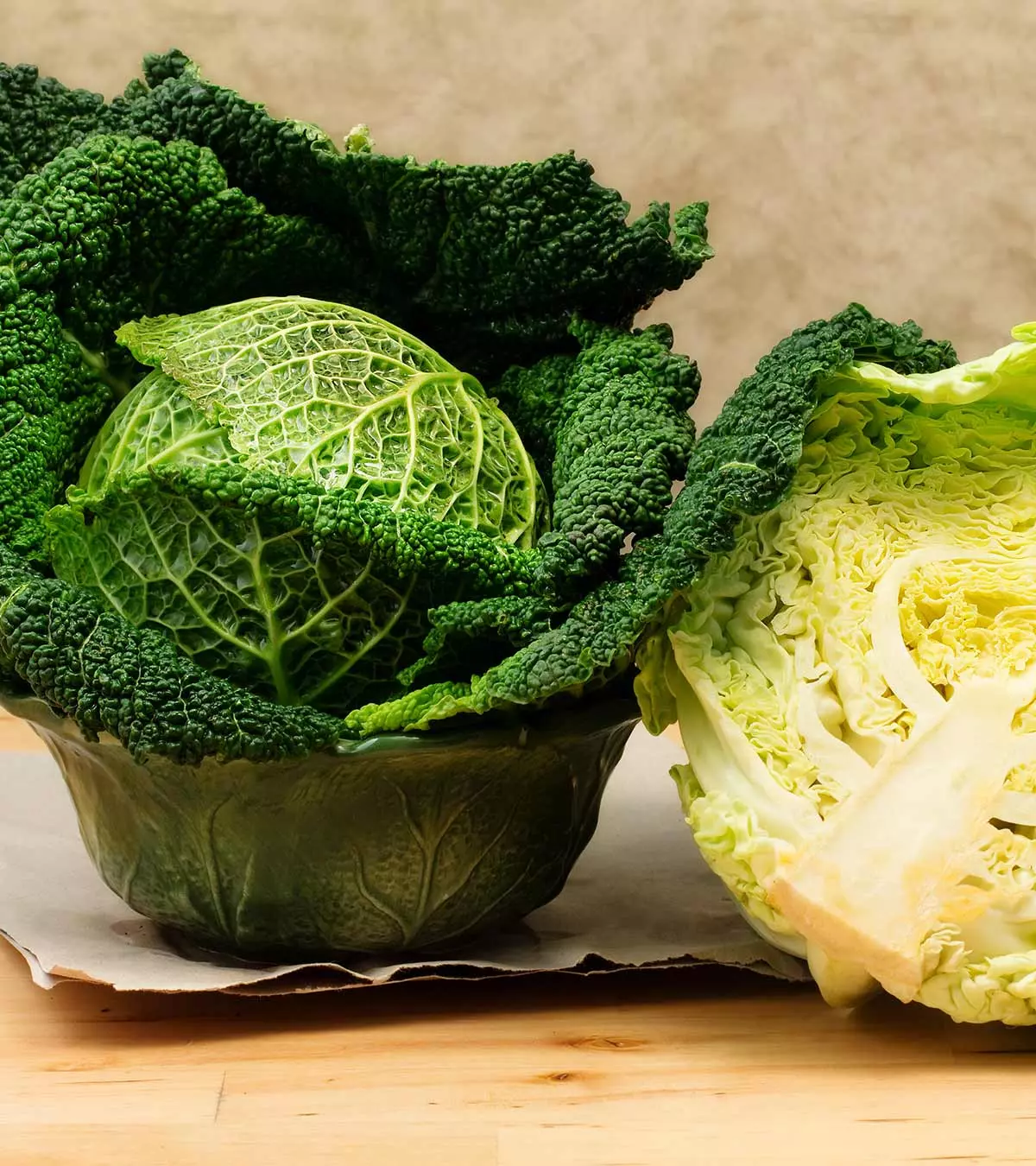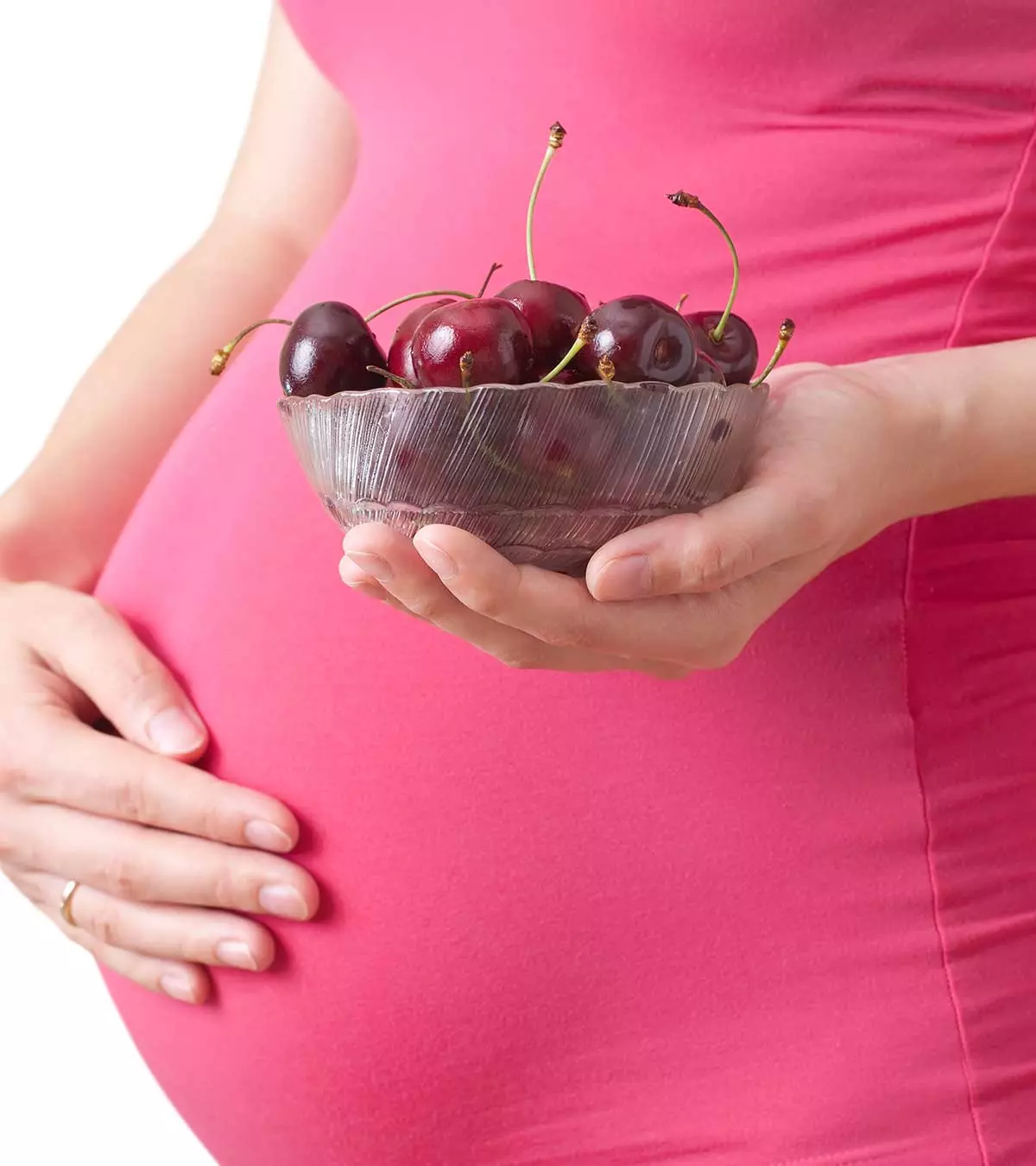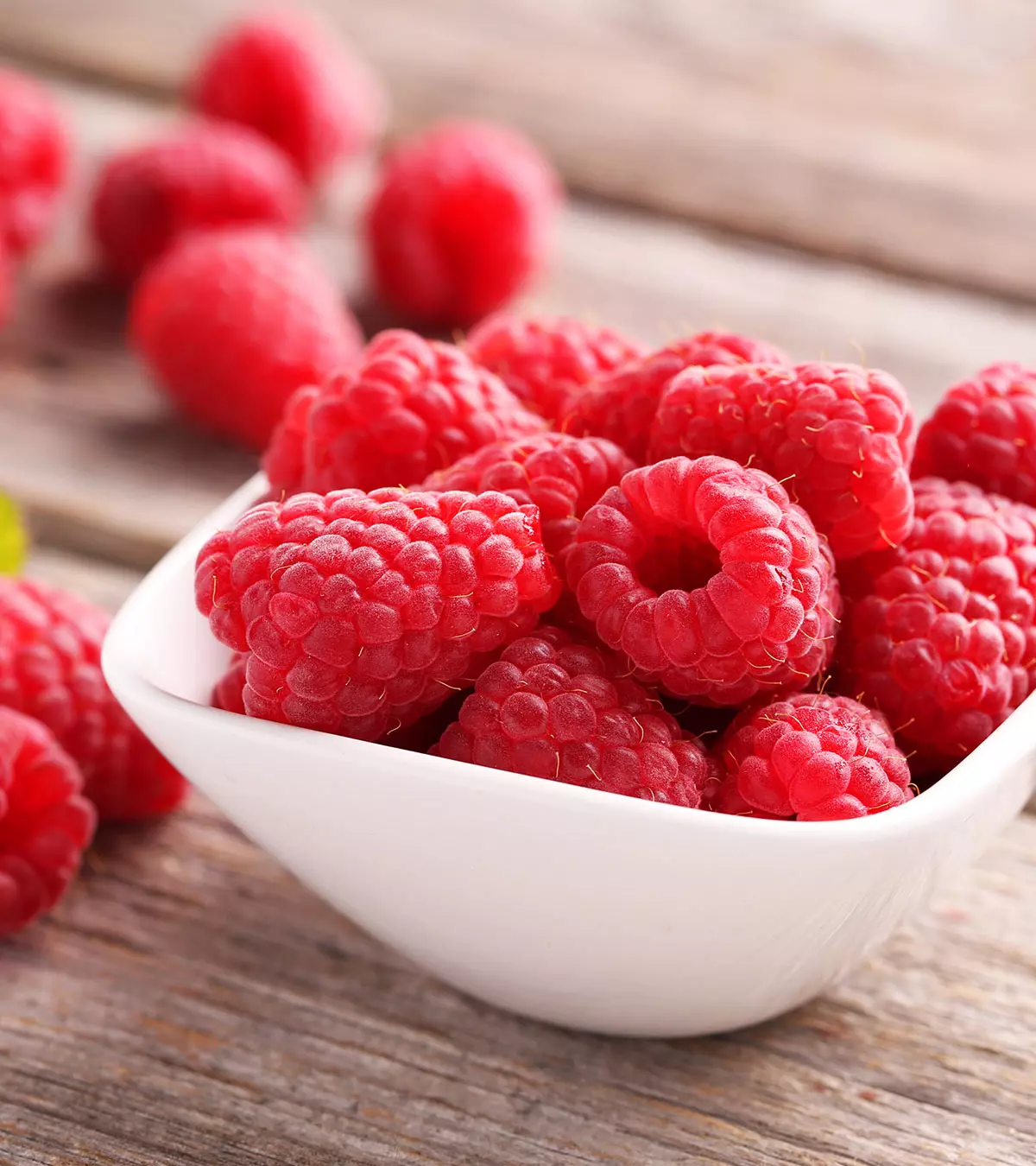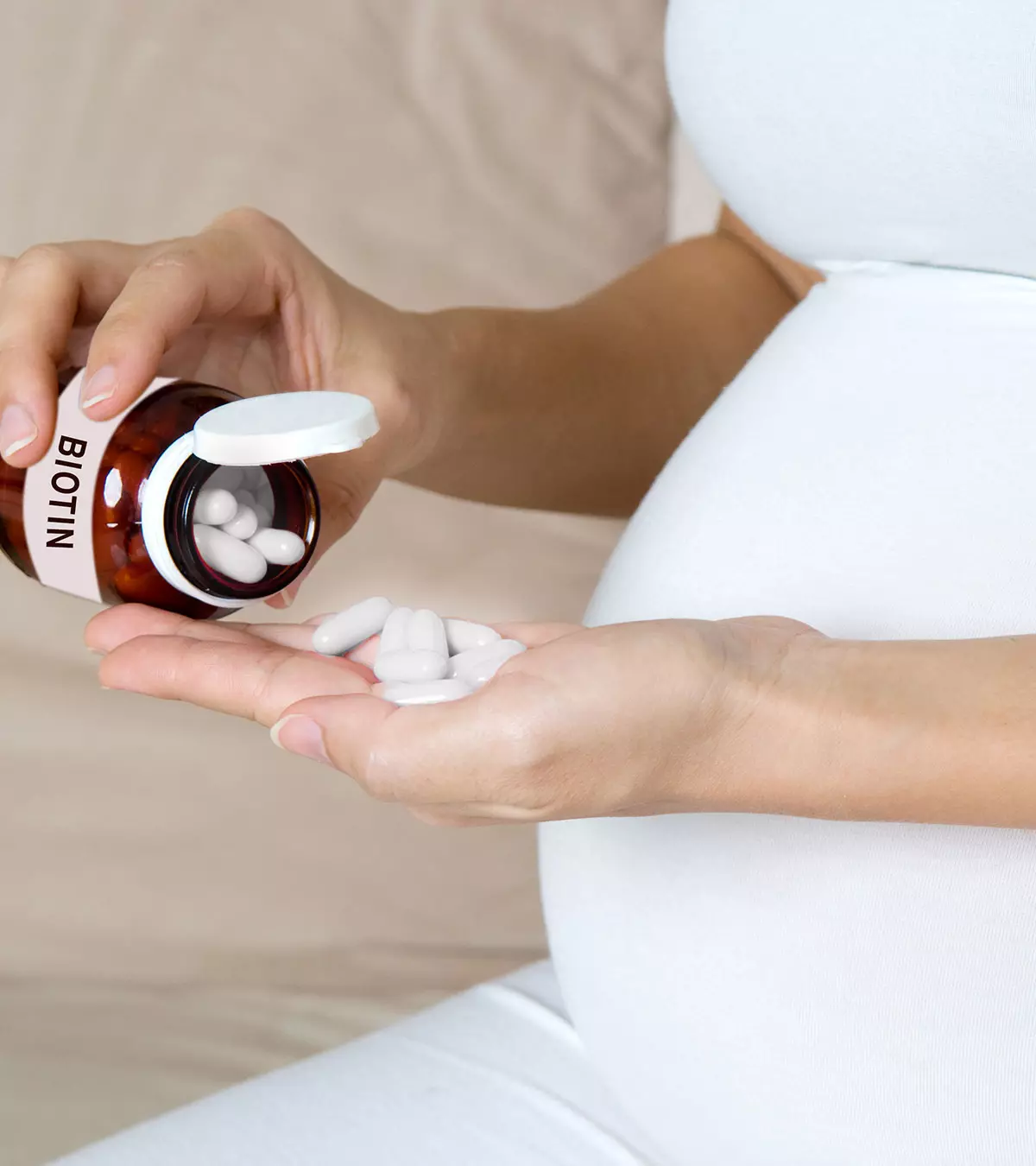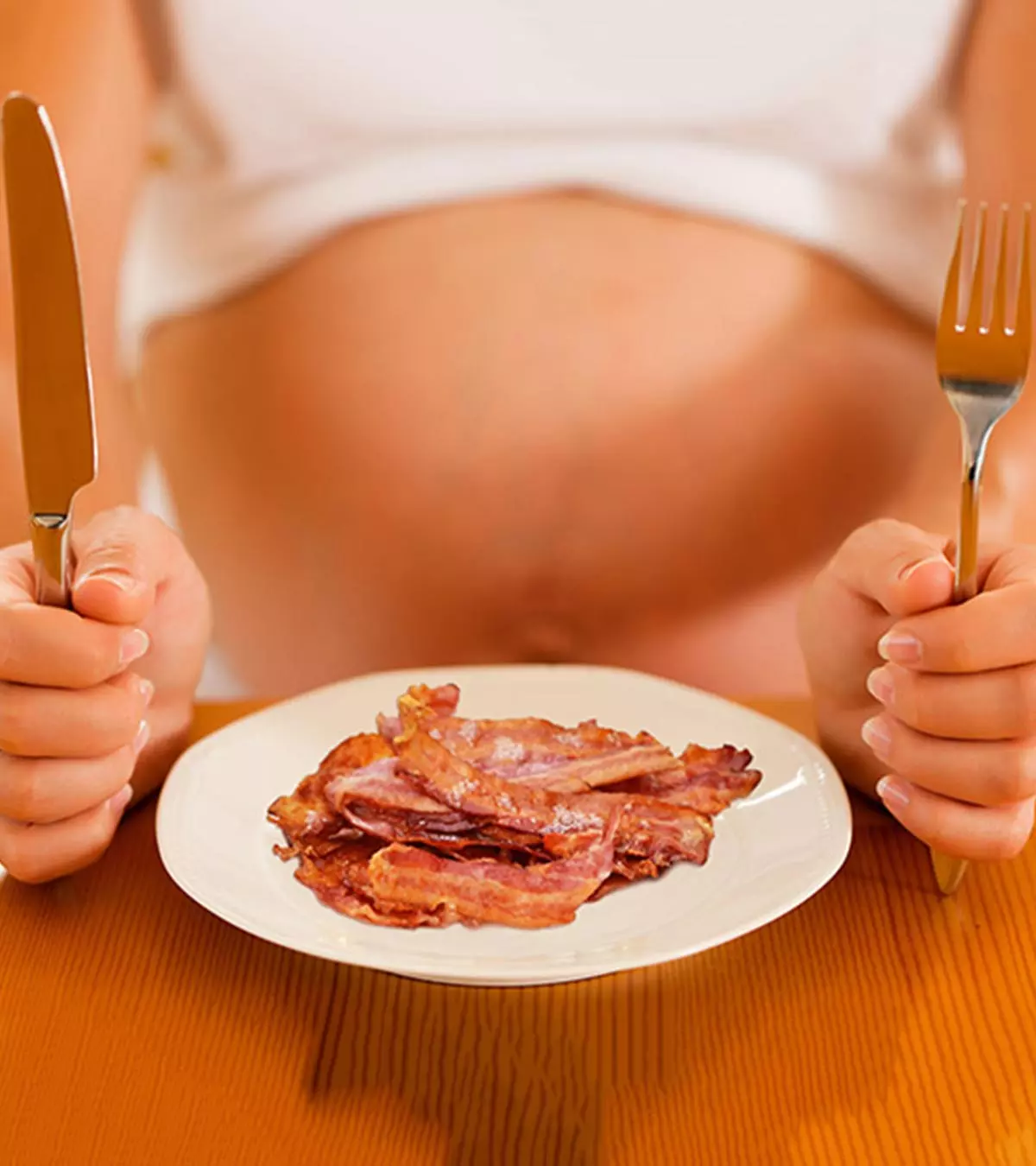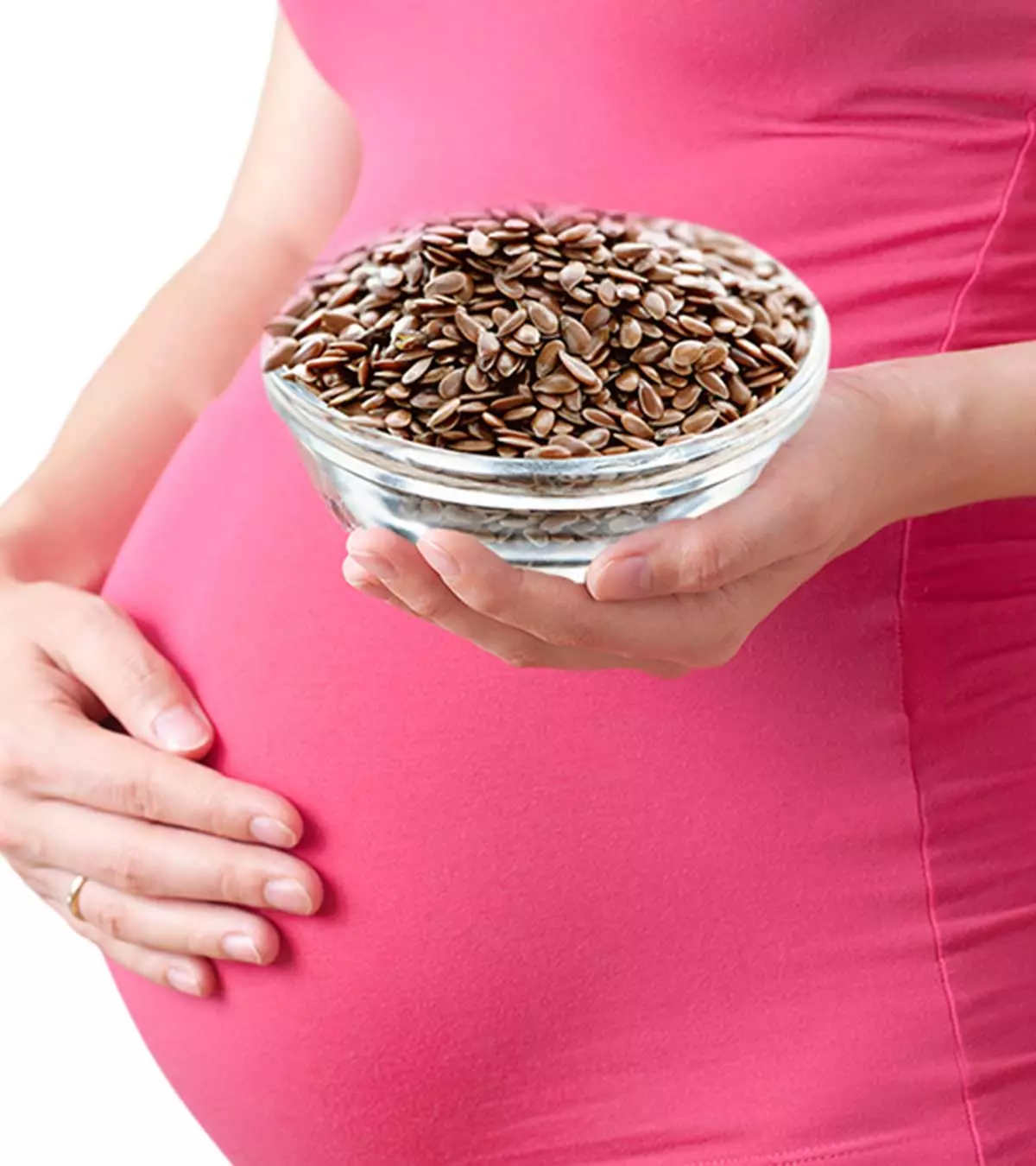
Image: ShutterStock
You might be thinking about whether or not you can eat flaxseed while pregnant. Flaxseeds or linseeds, called alsi in India, are small, tan, brown, or golden seeds. They are a great source of dietary fiber and antioxidants. They contain minerals such as magnesium, iron, calcium, potassium, zinc, proteins, and vitamins B6, E, and folate (folic acid). Flaxseeds are a source of plant-based omega-3, and omega-6 fatty acids and lignans. A tablespoon of flaxseed oil is worth around 700 milligrams of EPA and DHA, which is essential for the brain development of infants. You can consume them as a whole, sprouted, ground, or in the form of oil (1).
In this post, MomJunction tells you about eating flaxseeds during pregnancy, its benefits, and ways to include them in your diet.
Key Pointers
- Flaxseed is a great source of dietary fiber, minerals, proteins, vitamins, omega-3 fatty acids, and lignans, which are good for both mother and child during pregnancy.
- It is recommended to consume flaxseed in moderation during pregnancy.
- Overconsumption of flaxseed during the gestation period can cause hormonal imbalances. Therefore, it is best to consult a doctor before consuming flaxseed.
- Flaxseed offers various benefits during pregnancy, such as aiding fetal brain development, relieving pregnancy constipation, controlling blood sugar levels, preventing cancer, and lowering the risk of cardiovascular diseases.
- Raw flaxseed can be toxic. Therefore, it is advisable to consume roasted flaxseed.
- Consumption of flaxseed can lead to side effects such as diarrhea, nausea, and gas, and even poisoning if taken in excess.
- Flaxseed oil should be avoided during pregnancy, as it could create issues in the pregnancy process.
Is It Safe To Consume Flaxseeds During Pregnancy?
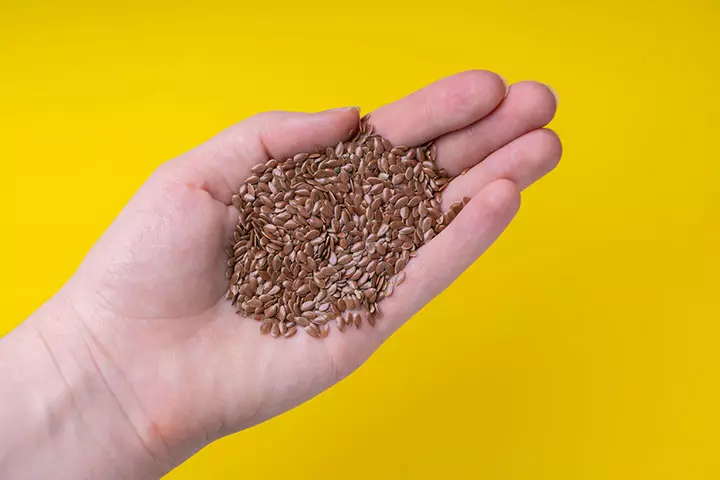
Image: IStock
It is safe to eat a moderate amount of flaxseeds during pregnancy as large amounts can act like estrogensiA sex hormone linked to the female reproductive system and is crucial for menstruation and pregnancy in the body, causing hormonal disturbances. As there is little research on the effects of flaxseeds during pregnancy, it is best to consult your doctor before using them.
What Quantity Of Flaxseed Can You Have During Pregnancy?
You can have about one tablespoon of ground flaxseeds every day during pregnancy. This will meet your daily requirement of 1.4g alpha-linoleic acid (ALA) (2).
Nutritional Benefits Of Flaxseeds During Pregnancy
The following are the nutrients in 100 grams of ground flaxseeds (15).
| NUTRIENT | AMOUNT |
|---|---|
| Energy | 545kcal |
| Protein | 18g |
| Carbohydrate | 34.4g |
| Fiber | 23.1g |
| Calcium | 230mg |
| Iron | 5.78mg |
| Magnesium | 372mg |
| Potassium | 793mg |
| Phosphorus | 556mg |
| Sodium | 37mg |
| Zinc | 4.74mg |
| Selenium | 136µg |
| Vitamin B-6 | 0.393mg |
| Niacin | 3.76mg |
| Biotin | 33.8µg |
| Folate | 41µg |
| Vitamin K | 3.7µg |
What Are The Benefits Of Flaxseed During Pregnancy?

Image: Shutterstock
Flaxseeds contain some of the vital nutrients that you require during pregnancy.
1. Essential nutrients aid fetal brain development
Flaxseeds contain two essential fatty acids – linoleic acid and omega-3 fatty acid- that play a prominent role in fetal development during early pregnancy (3).
These fatty acids especially promote brain development.
2. Relieves pregnancy constipation
Flaxseeds are a good source of fiber and help keep constipation at bay. Regular consumption of flaxseeds in moderate amounts, along with plenty of water, can ease bowel movements and also prevent hemorrhoidsiSwollen and irritated veins in the anus or the lower rectum, also known as plies (4). However, it can also be a cause of constipation if taken in excess, and without adequate amounts of liquids.
3. Controls blood sugar levels
It is common for the blood sugar levels to rise during pregnancy, and flaxseeds can help control them.
Also, the risk of Cesarean deliveryiA medical procedure in which the mother's abdomen and uterus are cut open to deliver the baby and high birth weight reduces with the use of flaxseed oil (5).
4. Prevents cancers
Lignans (phytonutrients) present in flaxseeds decrease the risk of breast and ovarian cancersiA condition where uncontrolled growth and multiplication of cancer cells occur in the fallopian tubes or ovaries (6).
5. Lowers risk of cardiovascular diseases
Research findings show that flaxseeds help lower the bad cholesterol levels (LDL) and increase the good cholesterol levels (HDL). They are known to possess blood-thinning properties, which reduce the risk of clogging in arteries (7).
In spite of these benefits, flaxseeds should be eaten in moderation, as excess consumption can be risky for a pregnant woman.
 Health fact
Health factPossible Side-effects Of Flaxseeds During Pregnancy
These are some of the side effects of including flax seeds in your diet during pregnancy.
- Nausea, diarrhea, and gas due to over-consumption
- If you are allergic, reactions such as swelling of the lips, tightness in the chest or breathing problems

Image: Shutterstock
- A sudden increase in blood pressure when you consume unripe or raw flaxseeds.
- Cyanide present in flaxseeds can lead to poisoning when taken in excess amounts (8).
Discuss with your healthcare provider before adding flaxseeds to your diet, especially if you have underlying health conditions or are taking medications. If you are not allergic and want to make flaxseeds a part of your maternal nutrition in limited amounts, then here is how you can go about it.
 Caution
CautionWays To Include Flaxseeds In Prenatal Diet

Image: Shutterstock
Flaxseeds, along with chia seeds are considered superfoods as they offer significant health benefits when included in the diet. Avoid raw flaxseeds as they can be toxic. Roast the seeds to destroy the cyanide compounds and consume them freshly roasted. You can also grind the roasted seeds into powder and store in an airtight container, as your body takes more time to digest and absorb whole seeds.
Here are some ways to include the roasted flaxseed powder in your diet:
- Add to smoothies or yogurt
- Mix into wheat dough for making bread, chapattis, paranthas
- Sprinkle over a fresh salad
- Add to oatmeal or any other cereal
- Mix in the batter of dosa, idly, bread and muffins
 Quick tip
Quick tipIf you have more queries about flaxseed consumption during pregnancy, read on.
Is Flaxseed Oil Safe During Pregnancy?
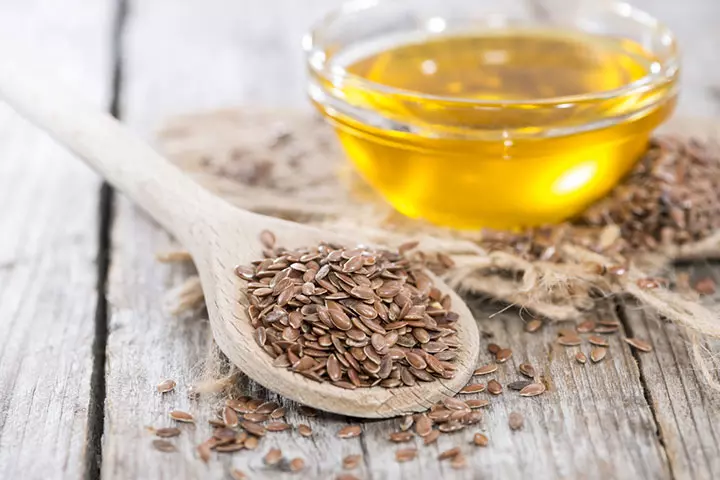
Image: Shutterstock
Do not take flaxseed oil during pregnancy without your doctor’s consent. Though the oil contains vital fats that a fetus needs, it could create issues as the pregnancy progresses. A study conducted at the Université de Montréal’s Faculty of Pharmacy found out that pregnant women who consumed flaxseeds during pregnancy had about 12% risk of premature birth compared to a 3% risk among women who didn’t.
The correlation was especially observed in women who consumed flaxseed oil during the second and third trimesters. However, consuming whole or ground seeds does not seem to create this risk (9).
Is It Safe To Take Flaxseed Oil Tablets During Pregnancy?
Flaxseed oil tablets are a source of vegetarian omega-3 fatty acids. Though you can get a healthy dose of omega-3 by adding the flaxseed oil tablets/capsules/supplements to your diet, it is better to seek your doctor’s advice first.
Frequently Asked Questions
1. Will flaxseeds add weight in pregnancy?
No, flax seeds are known to support weight loss. This is because they contain healthy fats and fiber that keep you full for a long time without consuming more calories (11).
2. Can flaxseeds cause miscarriage?
According to a taboo, flaxseeds were believed to be abortive substances since they consider the baby an infection while managing inflammation in the body and thus cause a miscarriage (12). However, there is no scientific evidence to prove this belief.
3. Can flaxseed help with postpartum depression?
An animal-based study showed that flaxseeds might help alleviate depression- and anxiety-related behavior. However, more clinical studies involving pregnant samples are needed to validate the findings (13).
4. Can flaxseed help reduce the risk of gestational diabetes during pregnancy?
A study highlighted that flaxseed may have hypoglycemic effects (14). However, the study did not analyze the impact of flaxseed on gestational diabetes. Therefore, more clinical studies are warranted to confirm these findings.
Flaxseeds are a good source of fiber, omega-3 fatty acids, protein, and other nutrients. Consuming flaxseed while pregnant could help relieve constipation, control blood sugar, and lower cardiovascular diseases. However, doctors suggest that you should consume these seeds in moderation because excess may cause hormonal imbalances, allergies, and nausea. Always consume roasted flaxseeds as the raw ones can be toxic. Enjoy them by adding them to smoothies, oatmeal, salad, etc. Consult a doctor if you notice any discomfort or side effects after consuming them.
Infographic: Benefits And Risks Of Flaxseeds During Pregnancy
Flaxseeds, also called linseeds, are tiny, brown, tan, or golden seeds rich in omega-3 fatty acids and dietary fibers. Eating flaxseeds has several benefits for pregnant women and the fetus, but excess consumption can be harmful. Check out the infographic below to learn about the risks and benefits of flaxseeds for pregnant women. Illustration: Momjunction Design Team
Illustration: Is It Safe To Eat Flax Seeds During Pregnancy?

Image: Dall·E/MomJunction Design Team
References
- Flaxseed A Review of Health Benefits.
https://www.pbrc.edu/training-and-education/pdf/pns/pns_flaxseed.pdf - Omega-3 Fatty Acid Status in Overweight Pregnant Women of Louisiana.
https://repository.lsu.edu/cgi/viewcontent.cgi?article=2244&context=gradschool_theses - Jaclyn M Coletta et al.; (2010); Omega-3 Fatty Acids and Pregnancy.
https://www.ncbi.nlm.nih.gov/pmc/articles/PMC3046737/ - Flaxseed and Flaxseed Oil.
https://www.nccih.nih.gov/health/flaxseed-and-flaxseed-oil - André Manoel Correia-Santos et al.; (2015); Maternal use of flaxseed oil during pregnancy and lactation prevents morphological alterations in the pancreas of female offspring from rat dams with experimental diabetes.
https://www.ncbi.nlm.nih.gov/pmc/articles/PMC4459801/ - Priyanka Kajla et al.; (2015); Flaxseed-a potential functional food source.
https://www.ncbi.nlm.nih.gov/pmc/articles/PMC4375225/ - Delfin Rodriguez-Leyva et al.; (2010); The cardiovascular effects of flaxseed and its omega-3 fatty acid alpha-linolenic acid.
https://www.ncbi.nlm.nih.gov/pmc/articles/PMC2989356/ - Nadia Chaouali et al.; (2013); Potential Toxic Levels of Cyanide in Almonds (Prunus amygdalus) Apricot Kernels (Prunus armeniaca) and Almond Syrup.
https://www.ncbi.nlm.nih.gov/pmc/articles/PMC3793392/ - Pregnant women consuming flaxseed oil have high risk of premature birth study finds.
https://www.sciencedaily.com/releases/2008/10/081027140817.htm - Flaxseed.
https://www.mountsinai.org/health-library/herb/flaxseed - Mr. Shaikh Akbar et al. (2021); Flaxseeds: A Review.
https://ijirt.org/publishedpaper/IJIRT152451_PAPER.pdf - Allison Rachel Cantor; (2016); Costumbres, Creencias, y “Lo normal”: A Biocultural Study on Changing Prenatal Dietary Practices in a Rural Tourism Community in Costa Rica.
https://digitalcommons.usf.edu/cgi/viewcontent.cgi?article=7395&context=etd - Nebal El Tanbouly et al.; (2017); Antidepressant-Like Effect of Selected Egyptian Cultivars of Flaxseed Oil on a Rodent Model of Postpartum Depression.
https://www.ncbi.nlm.nih.gov/pmc/articles/PMC5733178/ - Kailash Prasad and Arti Dhar; (2016); Flaxseed and Diabetes.
https://pubmed.ncbi.nlm.nih.gov/26561065/ - Flaxseed, ground; U.S. Department of Agriculture.
https://fdc.nal.usda.gov/food-details/2262075/nutrients
Community Experiences
Join the conversation and become a part of our nurturing community! Share your stories, experiences, and insights to connect with fellow parents.
Read full bio of Dalia Kinsey
Read full bio of Swati Patwal
Read full bio of Rebecca Malachi
Read full bio of Aneesha Amonz





